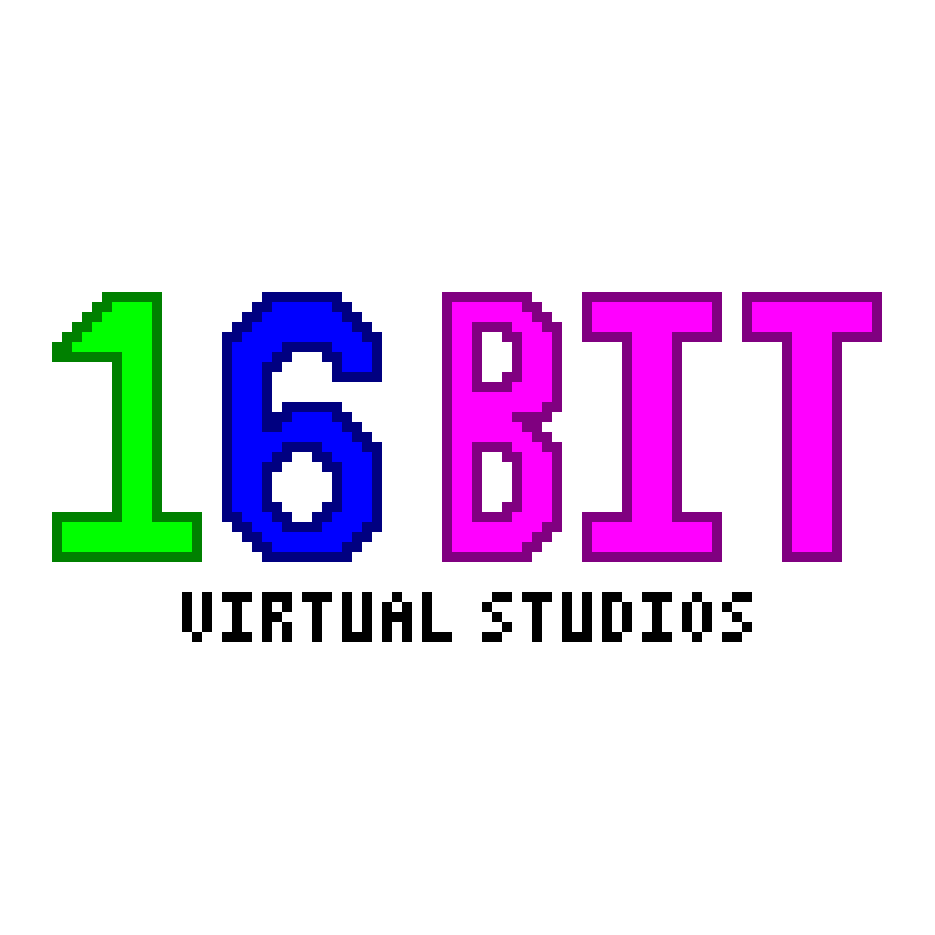This is in response to the new California law that forces stores to clearly disclose that the customer is buying a temporary license.
Just like the EU, California does a lot for global customer protection.
Except the cancer warning thing which didn’t exactly have the desired effect. Good intent, bad execution.
Honesty is good.
I still hate the future.
So if I download a pirate copy, I’m in the clear because I purchased a license.
Doesn’t GOG provide the games without copy protection? Doesn’t that mean you can actually back up your installed games?
In any case, these services should allow their customers to download a digital copy of an ISO or an installable package of the game so it can be saved as a backup and installed independently.
drm is optional on steam, plenty of games are just binaries you can backup like any other. Not that it helps much with the games that do use it…
Is there a way through steam to see your owned drm free games (or in owned)?
The steam store page of a game should to tell on the right sidebar if
- it uses 3rd party DRM
- or online-only restriction
- or requires 3rd party account sign-in
All of these are marked in a visible yellowish frame below the steam-feature list.
If it uses DRM that is not 3rd party, I think that means it uses Steam DRM, which is not common in my experience. This one is also kind of easy to patch out, or at least it was the last time I did so which was years ago
Yea, I thought gamma was talking about steam games that don’t have steam drm. Aka drm free steam is still a drm and unless I’m dumb most games have steam drm.
I don’t think so. most often you just need to put a steam emu’s dll besides it, and that’s because most games are not coded to handle when steam was not installed. when a game has steam drm, you have to use an additional program that modifies the game’s executable. so far I only had to do this once
I know steam has an option to add non steam games to the launcher so you can see and launch through it. Iirc it’s at the bottom left of the games list.
steam enhancement suite might have it?
So if I download a pirate copy, I’m in the clear because I purchased a license.
Nope since the copy of the software was obtained with someone else’s license. That said this would be hypothetically impossible to prove in court so 🤷
Circumventing DRM is questionable since I think it’s illegal to distribute but not own. So let’s say you have a CD installer for the Sims and download a crack exe to launch it without the CD. You are in the clear but the host for the download is not.
GOG or backing the game up yourself is the only way around this.
Yeah moving forward I’m going to buy on GOG.
It’s already legal to download backups in certain jurisdictions, for example in France.
Also, it’s very undocumented but you can actually generate an offline installer for a copy of a game you own on steam. It will still require steam and to be logged in in offline mode with an account that has a licence, of course, but it is a thing you can do.
Interesting. I’ll check that out. There’s a few games I would like to keep a backup of just in case.
When you buy on GOG you really get the game, you can (without needing a launcher) download installers without any trouble and you can do whatever you want with them. Want to put a bunch into a pen drive and share with you friends? No problem. Want to install them on a device with no Internet connection? No problem. Want to back them up for whatever reason? No problem.
EDIT: People telling me its not legal, its not about being legal or not, its about having the power to decide to do whatever you want.
You still buy a license from GOG like with any piece of software. It’s just that you get the files without DRM. You can’t resell those files like you could if you truly owned the game.
This isn’t actually true.
Gog isn’t ‘piracy is strictly legal’ there is still a license attached to the software that can have restrictions.
Oh cool! I didn’t know they went that far.
I’m buying from GOG from now on.
Gog has the same language, check section 2.1 of their user agreement.
https://support.gog.com/hc/en-us/articles/212632089-GOG-User-Agreement?product=gog
Maybe, but they provide the software without DRM and with the option to get an offline installer.
(I just learned Steam does that as well apparently but with extra steps.)
Would you mind sharing these extra steps?
I haven’t figured them out yet 😅
I’d rather own the games that I pay for than “rent” them in the first place. Sure, this is useful. But it doesn’t really solve the issue of not owning anything you buy these days. If anything this will just give them an excuse when they decide to take games you paid for away from you.
I’d rather own the games that I pay for than “rent” them in the first place.
But people will still pay up anyway.
Gamers have a very short memory. The “ooh shiny!” mentality means that, as a demographic, they are willing to tolerate a high degree of abuse as long as they get to placate themselves with self amusement software.
corporations would make breathing a subscription service if they could
When you are six hours into playing Battlefield and you run out of ammo in your clip, and we ask you for a dollar to reload, you’re really not very price sensitive at that point in time. A consumer gets engaged in a property, they might spend 10,20,30,50 hours on the game and then when they’re deep into the game they’re well invested in it. We’re not gouging, but we’re charging and at that point in time the commitment can be pretty high. But it is a great model and I think it represents a substantially better future for the industry.
I was reminded of this. They would if they could. I am glad i am not living in that timeline.
When you are six hours into playing Battlefield and you run out of ammo in your clip, and we ask you for a dollar to reload, you’re really not very price sensitive at that point in time
Forgot how evil that was. God, if i was 6 hours in, and they asked me a dollar to reload, i’d uninstall the game, and go play some minecraft or something.
Wait. They did this?!
I am glad i am not living in that timeline.
Yet
They should be forced to make buyers own it instead of another popup nobody reads.
It COULD become a good change if games get backlash for having the popup but when 90% of games have it nobody will care.
This just gives the “well you didn’t read the TOS so it’s actually your fault” idiots more talking points.Could go either way but I assume it wont change much.
This was always the case. The only difference is the words they use.
The only difference is the words they have to use. They aren’t making this change by choice
I find it indescribably funny that no matter what, every news site somehow manages to always put a mobile app install screen with the company’s product as the banner image for their articles, even in this case, when I think most people would have probably never even thought of Steam as a mobile app, only as PC software.
Company complies with the law.
PCMR: Wow, what a great company!
I just really want to pass on my game library to my kids one day. Can licenses be passed on, or is inheriting entertainment just dead now?
According to the EULA, no. According to common sense, leave the steam password in your will and you’re fine.
If i remember correctly, gog allows this
Buy from GOG, download and archive the installers yourself.
I feel like there needs to be some kind of way of recording what games have been purchased (licensed) so that if a store were using goes out of business we should be able to get it from another store, at least for a very reduced price just to cover their costs.
This isn’t up to the stores. It’s up to the gaming developers who own the right to license the games. I have been making this argument for years, and explaining digital (and physical) content licensing to people on the internet for years and almost always get downvoted because they don’t like facts that interfere with their sense of righteousness.
I don’t disagree that is scummy practice to randomly end a license and take something someone paid for out of their library or otherwise deny them access to it. but I cannot stress enough that this is the fault of both parties or the licensing agreement (the license seller and the entity that agrees to allow the license seller to sell licenses to the content). People will always blame Sony or Amazon or Apple. But never Universal, or Disney, or Paramount or whoever. It’s both. They’re both assholes in this scenario. One of them is limited by the law. The other one can offer that content by other means to people who have already purchased it once but won’t because capitalism and greed.
If gamers weren’t so against it, honestly NFTs could actually be that thing.
Good. I like transparency and this has always been the truth. And I’m glad Valve isn’t doing much to fight against it.
Every game I bought before the wording change should be under my ownership imo. Retroactive shit is bullshit.
It was always in the EULA. You signed the contract when you made the account.
Nobody reads that shit.
It’s still not retroactive
Is it a blanket statement for every purchase regardless of what game it is?
If so, that’s completely useless.It informs customers, that licensing a game on Steam is not like buying a pair of pants on
pantsshop24.org. That’s what it’s meant to do.I thought it would only apply to certain games. I feel like it’s just normalizing it rather than really being educational. Now companies can go fullboar with games only being a license and just point to the disclaimer as an excuse.
You only buy a license to watch/listen media private in most cases. Even if yo buy a DRM free copy of a film/track/game, you only have a license to consume it private. If you want to show (or share) with public, you need another (way more expensive) license to do that legally.
The only difference is, when you only stream the media or there is DRM on the files, it is not possible to archive it easily and the danger of lost media is far greater.
Dude, you just cannonballed into the Achualy pool. You know that’s not what we’re all talking about.
Well, in this case, it is actually Valve that does the licensing. I don’t think the original companies have much to do with it, other than maybe being more willing to sell through Steam than e.g. GOG or itch.io.
But all in all, yes, it would be a much more useful law, if it declared such a licensing model void.
I’m guessing, they didn’t tackle that problem, because there are more legitimate uses of a licensing model, like World of Warcraft only giving you access while you’re paying the monthly fee.Nothing unsolvable, but you need some solid laws and it’d be a lot less likely that you’d get support from enough political parties to carry this into actual law.
Just like popups about cookies!
Those are like a real life Navi from Zelda.
“Hey! Link!” one every site is annoying.
That crap really needs to be a browser setting.
Not really. If you buy the game on gog, you own it.
GOG themselves literally said that you do not, even very recently. You own a license like every other customer, and it can be revoked at their discretion.
GOG choose to exclusively sell games for which they can sell DRM-free versions, which is a great option for consumers. It is not a straightforward decision however as this is, whether it is a priority or not, a tradeoff for the things that Steam integration provides - cloud backup, mod workshops, multiplayer functionality etc.
Steam also sells plenty of DRM-free games, and offer customers the informed choice when selling Steam DRM and Third-Party DRM controlled game licenses.
This is not an argument that Steam or GOG are objectively better. But it is a straightforward lie to state that the license you buy from GOG is legally different from the one you buy from Steam. What is different is the possibility or otherwise of DRM software being used to control your adherence to the license.
You’re like one of three people on Lemmy that understands this. I always get piled on whenever I bring it up.
It is usually also followed by “but I can download my installers and then I can have them whenever I like” as if it’s a sane idea to store terabytes of offline installers for the day that GOG goes out of business.
I mean, I also have terabytes of offline installers for the day that Steam or GOG go down. On other people’s computers. In a, uh, distributed distribution system.














